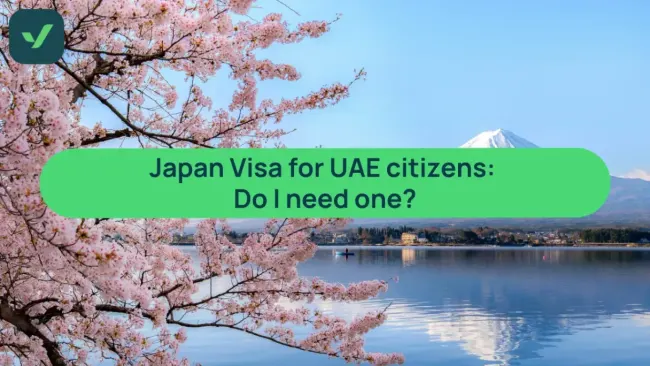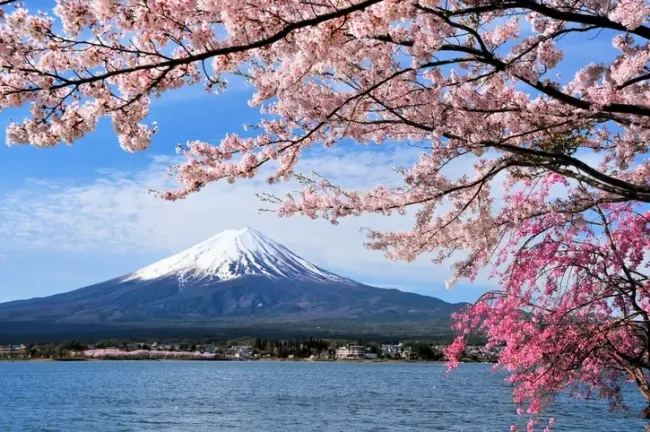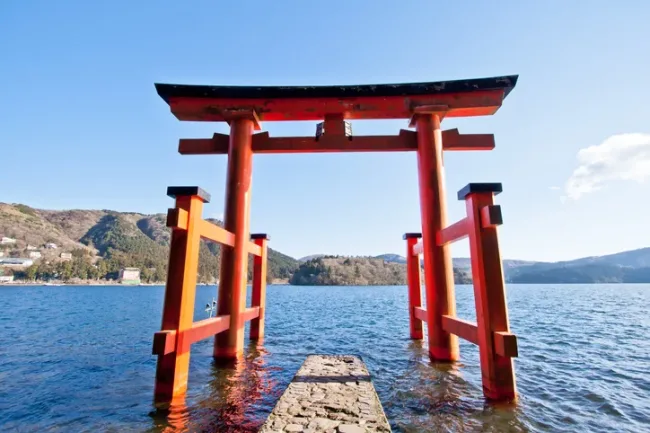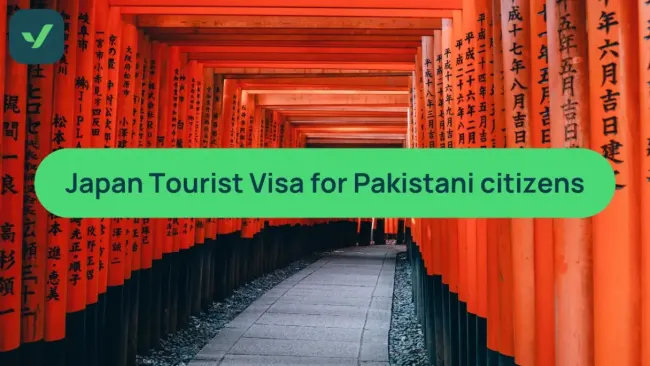
Japan
Welcome to Japan
Are you wondering whether a visa is necessary for your visit to Japan? Look no further. This blog will help you figure out if a visa is needed and assist in choosing the correct visa according to your travel plans.

What’s a Japan eVisa and who’s it for?
Who’s the Japan eVisa for?
Ordinary passport holders from a limited number of countries, like Brazil, Cambodia, Canada, Singapore, the United Kingdom, the USA, and more.
Find out if you qualify for the Japan eVisa with the Visa Checker Tool.
Who’s not eligible for a Japan eVisa?
-
Travelers who qualify for the eVisa but are not traveling by plane.
-
Nationals of countries that are not eligible for the Japan eVisa.
-
Nationals of China and Vietnam residing in their respective countries (they can only apply through designated travel agencies).
-
Residents of Mongolia, except those exempt from needing a short-term visa.
What’s the purpose of the Japan eVisa?
Tourism activities like sightseeing, exploring, and leisure.
How long can you stay with a Japan eVisa?
The Japan eVisa grants a Single entry to the country for a period of up to 90 days per entry.
What’s a Japan Tourist Visa and who’s it for?
Who’s the Japan Tourist Visa for?
Also known as a Temporary Visitor Visa, this visa is for:
-
Nationals from countries that are not eligible for the Japan eVisa, including Cambodia, India, Pakistan, Kenya, Colombia, and more.
-
Nationals from countries that qualify for a Japan eVisa but want to carry out other activities apart from tourism during their stay.
Who’s not eligible for a Japan Tourist Visa?
Individuals intending to engage in paid work or long-term stays in Japan are not eligible under the Japan Tourist Visa.
What’s the purpose of the Japan Tourist Visa?
-
Tourism.
-
Participation in meetings, cultural exchange, exchange between municipalities, sports exchange, etc.
-
Business-related activities like conferences, business meetings, contract signing, after-sales service, advertising, market research, etc.
-
Visiting relatives or friends.
How long can you stay with a Japan Tourist Visa?
The tourist visa is valid for 15, 30, or 90 days, and it can be a single or multiple entry. The validity period is determined by the immigration officer processing your application.
Learn more about the Japan Tourist Visa.
What’s a Japan Business Visa and who’s it for?
Who’s the Japan Business Visa for?
Individuals from countries that require a visa to enter Japan and who are traveling for business-related purposes.
What’s the purpose of the Japan Business Visa?
The primary goal of the Japan Business Visa is for short-term business activities within Japan. It allows business professionals to engage in various business-related activities but does not permit employment or long-term stays.
How long can you stay with a Japan Business Visa?
Typically, the business visa permits a stay of up to 90 days.
What’s a Japan Transit Visa and who’s it for?
Who’s the Japan Transit Visa for?
Citizens of countries that are required to have a visa to enter Japan and are transiting through Japan on their way to a third country.
What’s the purpose of the Japan Transit Visa?
To allow travelers who need to enter Japan as part of their itinerary to another country to do so legally. It is specifically for those who must leave the airport's international transit area, for instance, to catch a connecting flight at another airport or because there is no immediate connecting flight available.
How long can you stay with a Japan Transit Visa?
The Japan Transit Visa is valid for a maximum of 15 days and cannot be extended.
What are the Japanese long-term visa options and who are they for?

Japan provides a broad spectrum of long-term visa options catering to various needs, encompassing work, study, family, and cultural exchange purposes. The following is a list of the more common ones:
-
Highly skilled professional visa: For individuals recognized as highly skilled in their fields. This category includes visas for highly skilled foreign professionals, with provisions for accompanying family members.
-
Working visa: Covers a wide range of professions, such as professors, artists, journalists, business managers, engineers, and more. Validity ranges from 3 months to 5 years based on the occupation and other factors.
-
Student and internship visa: Not just for university students but also for individuals attending language schools or participating in internship programs. The duration of these visas aligns with the length of the study or internship program.
-
Working holiday visa: Aimed at young people from certain countries, this visa promotes cultural exchange and allows for work as a secondary activity during the stay. It has specific age and financial requirements.
-
Start-up visa: Focused on supporting foreign entrepreneurs and their families looking to establish businesses in Japan, often with the backing of local municipalities.
-
Diplomatic visa: Reserved for diplomatic personnel like ambassadors and couriers, this visa is dedicated to those on official diplomatic missions in Japan.
-
Family visa: Tailored for the family members of foreign nationals residing in Japan with a status of residence. It enables spouses, dependent children, and other relatives to live in Japan.
-
Permanent residence visa: This visa is for foreign nationals who have shown a commitment to living in Japan and have met certain criteria. Permanent residency allows for an indefinite stay in Japan.
-
Medical stay visa: Issued to foreign patients wishing to visit Japan for medical purposes. The visa can be issued to their travel companions as well. The length of stay is determined in consideration of the condition of the patient’s illness.
We currently don’t handle applications for long-term visas to Japan, as well as business and transit visas. If you need more information on how to apply for them, you can visit the Ministry of Foreign Affairs of Japan website.
Staying healthy in Japan: Here’s what you need to know
Japan offers a wealth of experiences for travelers. Staying healthy is key to enjoying everything the country has to offer. Here's a health guide to help you prepare for your trip.
Make sure to stay updated on routine vaccines
-
Ensure you're up to date with routine vaccinations such as measles-mumps-rubella (MMR), diphtheria-tetanus-pertussis, varicella (chickenpox), polio, and your yearly flu shot.
-
Hepatitis A vaccine is recommended for most travelers, including those visiting friends and relatives, those staying in hotels, or those eating or drinking in urban and rural areas.
-
Hepatitis B vaccine is recommended for travelers who might have intimate contact with a new partner, get a tattoo or piercing, or have any medical procedures.
-
Consider getting the Japanese Encephalitis vaccine if your trip will last more than a month or if you will be spending a lot of time outdoors in rural areas.
-
Rabies vaccine is recommended for travelers involved in outdoor and other activities in remote areas that put them at risk for animal bites.
-
Stay informed about Japan's COVID-19 guidelines, including any requirements for quarantine, testing, or vaccination proof, by consulting your airline or the Ministry of Health, Labour and Welfare website.
Medical facilities
-
Japan's healthcare system is among the best globally, with a mix of public and private healthcare facilities available.
-
Hospitals and clinics offer high-quality care, especially in larger cities like Tokyo and Yokohama.
-
English-speaking staff may be limited, especially outside major urban areas.
-
Pharmacies are widely available but do not fill foreign prescriptions; a local doctor's prescription is needed.
Health insurance
We strongly recommend securing travel health insurance for your entire trip.
Healthcare services, especially at private facilities, can be quite expensive. Ensure that your insurance policy covers major healthcare expenses, including medical evacuation if necessary.
Verify with your insurance provider to ensure your plan offers extensive coverage, particularly for:
-
Compensation for any travel interruptions, cancellations, or delays.
-
Expenses for medical treatment and evacuation.
-
Expenses for medical treatment and evacuation.
Things to be aware of when visiting Japan

When planning a trip to Japan, it's important to be mindful of the following health considerations and potential hazards:
-
Natural disasters: Japan is prone to earthquakes, tsunamis, volcanic eruptions, typhoons, and landslides due to its geographical location.Stay updated with local weather advisories and understand the emergency procedures in place at your accommodation and by local authorities. The Japan Meteorological Agency provides real-time updates and advisories.
-
Radiation concerns: While most of Japan is safe from radiation, there remains an exclusion zone around the Fukushima Dai-Ichi nuclear power plant, a result of the 2011 earthquake and subsequent tsunami. Ensure to avoid restricted areas and heed travel advisories.
-
Animal and insect hazards: While urban areas are generally safe from wildlife, rural and natural settings in Japan can present dangers from creatures such as giant hornets, venomous snakes, and other potentially dangerous animals. It's advisable to wear appropriate footwear when hiking and be cautious around wild animals.
-
Health risks: There are potential health risks such as leptospirosis from contact with contaminated water, avian flu from poultry, and diseases transmitted by rodents, including hantavirus. It's best to avoid contact with animals and to ensure food and water safety by choosing cooked meals and bottled water.
-
Bug bites: Despite Japan's industrialization, bug bites can still transmit diseases. Use insect repellent, wear long sleeves and pants when in wooded areas, and consider treating clothing and gear with permethrin.
-
Observe local laws and customs: Be aware of local laws, such as smoking regulations and the zero percent blood-alcohol limit for drivers. Always carry your passport, as police have the right to check it.
Medication for personal use
If you're traveling to Japan with medication, consider these important guidelines:
-
Declare all medications: It's important to let the authorities know about any medicine you're bringing, especially if it's prescription or controlled.
-
Maintain original packaging: Make sure your medicine stays in the box or bottle it came in, with a clear label showing it's prescribed to you.
-
Have a prescription or doctor's note: Have a letter from your doctor or a current prescription with you explaining why you need the medicine.
-
Check for restrictions: Before you go, double-check to make sure your medicine isn't banned or restricted in Japan. The website for the Narcotics Control Department provides details on which substances are regulated.
-
Bring just what you need: Take only the amount of medicine you'll need for your trip to avoid any trouble.

 Australia ETA Online
Australia ETA Online
 United Kingdom ETA
United Kingdom ETA
 India Tourist eVisa
India Tourist eVisa
 Canada ETA Visa
Canada ETA Visa
 Turkey eVisa
Turkey eVisa
 Egypt eVisa
Egypt eVisa
 Singapore SG Arrival Card
Singapore SG Arrival Card
 Indonesia eVoa Visa
Indonesia eVoa Visa
 Aruba ED Card
Aruba ED Card


